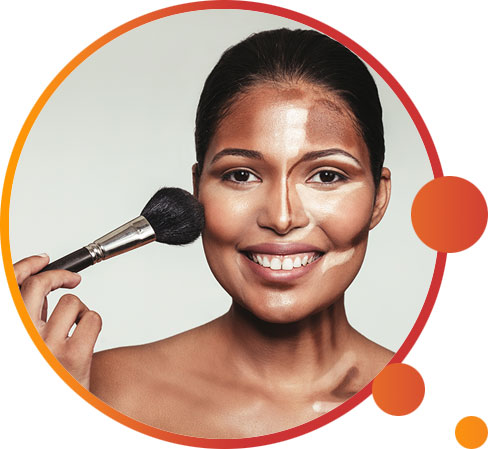Services SETA Personal Care Sector 2025: Learnerships, best Careers and Subsections

Services SETA Personal Care Sector and Its Subsectors: A Complete Guide
One of the most vibrant and fast-growing areas under the Services SETA is the SETA Personal Care Sector. This sector is closely linked to beauty, wellness, and grooming services—industries that not only improve people’s appearance and confidence but also create valuable jobs and entrepreneurial opportunities.
In this article, we take a closer look at the Services SETA Personal Care Sector and its subsectors, exploring the opportunities available for learners, professionals, and entrepreneurs.
What Is the Services SETA?
The SETA funds learnerships, internships, and skills programs that help unemployed youth and employees acquire practical qualifications. For the personal care sector, this means opportunities in beauty therapy, hairdressing, nail technology, and wellness services.
Why the SETA Personal Care Sector Matters
The personal care industry has become one of the most in-demand service sectors globally. In South Africa, beauty and wellness businesses—from salons and spas to skincare brands—play a critical role in the economy.
This sector matters because:
- High demand for services: People always seek grooming, beauty, and wellness treatments.
- Entrepreneurship opportunities: Many professionals go on to open salons, spas, or freelance businesses.
- Global career opportunities: Skills in personal care are transferable across countries.
- Youth empowerment: The sector absorbs many young people, particularly women, into sustainable careers.
Subsections of the Services SETA Personal Care Sector
The SETA Personal Care Sector under Services SETA is made up of different subsectors. Each focuses on specialized skills, creating a wide variety of opportunities for learners and professionals.
1. Hairdressing and Barbering
This is one of the largest subsectors, offering training in hair styling, cutting, coloring, and treatments.
Skills covered:
- Hair cutting and styling techniques.
- Chemical treatments such as relaxing, perming, and coloring.
- Barbering and men’s grooming services.
- Customer service and salon management.
Careers available:
- Professional hairdresser or barber.
- Salon owner or stylist.
- Mobile hair services entrepreneur.
2. Beauty and Skincare Therapy
This subsector focuses on enhancing natural beauty and maintaining healthy skin. It combines science with creativity.
Skills covered:
- Facial treatments and skincare.
- Make-up artistry for events, film, and everyday use.
- Eyebrow shaping, lash extensions, and tinting.
- Spa and relaxation treatments.
Careers available:
- Beauty therapist or skincare consultant.
- Make-up artist (freelance, salon, or media industry).
- Spa and wellness center employee.
3. Nail Technology
Nail care is a booming industry, with demand for professional nail technicians growing rapidly in South Africa.
Skills covered:
- Manicures and pedicures.
- Acrylic, gel, and nail art design.
- Hygiene and safety standards.
- Nail salon operations.
Careers available:
- Nail technician in a salon or spa.
- Mobile nail service provider.
- Nail bar entrepreneur.
4. Wellness and Spa Services
This subsector combines personal care with holistic health and relaxation services. It focuses on physical and mental well-being.
Skills covered:
- Massage therapy (Swedish, aromatherapy, sports massage).
- Spa treatments like body wraps and exfoliation.
- Customer service in luxury settings.
- Health and hygiene in wellness facilities.
Careers available:
- Massage therapist.
- Spa consultant or technician.
- Wellness retreat professional.
5. Cosmetic Consultancy and Retail
The growth of beauty retail has opened opportunities for professionals who guide customers in choosing products.
Skills covered:
- Knowledge of cosmetic products and brands.
- Skin type analysis and product recommendations.
- Sales and customer service.
- Marketing and promotions in retail spaces.
Careers available:
- Cosmetic sales consultant.
- Retail store manager in beauty outlets.
- Freelance product promoter or influencer.
Opportunities Offered by the Services SETA
The Services SETA supports the personal care sector by funding and accrediting training programs. Learners can access:
- Learnerships: Structured programs that combine theoretical and workplace learning.
- Skills programs: Short courses focused on specific personal care techniques.
- Bursaries and funding: Financial assistance for qualifying learners.
- Entrepreneurship support: Training to help graduates start their own businesses.
These opportunities ensure that learners not only gain skills but also become job-ready.
Who Can Apply for SETA Personal Care Sector Learnerships?
To apply for a Services SETA Personal Care Sector learnership, applicants typically need:
- A valid South African ID.
- To be between 18–35 years old (priority for unemployed youth).
- A minimum of Grade 10 or 12, depending on the program.
- Passion and interest in beauty, grooming, or wellness services.
Some institutions may require additional assessments or interviews.
How to Apply
- Research accredited training providers registered with the Services SETA.
- Check available programs on the Services SETA website or training centers.
- Prepare your documents (CV, ID copy, and qualifications).
- Submit your application online or directly to the training provider.
- Attend interviews or tests if shortlisted.
Final Thoughts
The Services SETA Personal Care Sector is one of the most exciting and fast-growing industries in South Africa. From hairdressing and nail technology to skincare, spa, and cosmetics, the sector provides countless opportunities for young people to gain skills and start sustainable careers.
With the support of Services SETA, learners can pursue training that not only improves employability but also encourages entrepreneurship. If you’re passionate about beauty, wellness, and grooming, this is the perfect sector to build your future.



